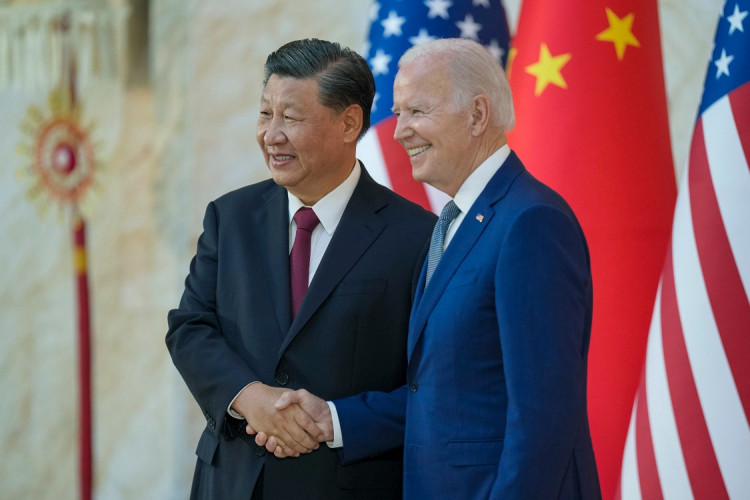The diplomatic dance between the United States and China took a hopeful turn as top officials from both nations met in the capital, paving the way for a possible face-to-face between President Joe Biden and his Chinese counterpart, Xi Jinping.
The commitment to a prospective summit was underscored during the three-day visit by China's Foreign Minister, Wang Yi, his first trip to Washington since 2018. While details remain to be ironed out, such as the precise date and venue, the potential meeting's symbolism in the U.S.-China relationship cannot be overstated.
During his visit, Wang held a marathon nine-hour discussion over two days with U.S. Secretary of State, Antony Blinken, and National Security Advisor, Jake Sullivan. The meetings, described by U.S. officials as "candid and in-depth", saw the Biden administration highlight concerns ranging from the South China Sea, Taiwan, human rights, to Beijing's influence in the Middle East.
In a sign of how crucial direct engagement is perceived, an unnamed senior administration official emphasized, "A big part of a potential meeting would be the two leaders sitting down together and discussing strategic intent."
Beyond these dialogues, President Biden also found time to meet Wang, underscoring the importance of "managing competition responsibly and maintaining open lines of communication." The White House viewed the encounter as a positive step, spotlighting the importance of continuous dialogue.
Such top-tier engagements are viewed as essential by Washington to steer a complex relationship marred by issues like economic competition, regional disputes, and the remnants of a trade war ignited during the Trump administration. Notably, the ongoing conflict between Israel and Hamas and its wider implications in the Middle East also featured prominently in talks. The U.S. hopes China, with its ties to Iran, a significant backer of Hamas, could play a constructive role in restoring peace.
The Asia-Pacific Economic Cooperation (APEC) summit scheduled for next month in San Francisco may serve as the backdrop for this high-level meeting. While the White House acknowledges preparations are in progress, the official confirmation from the Chinese side is eagerly awaited. Historically, Beijing's modus operandi has been to announce such trips closer to the event.
Diplomatic engagements between the two nations have intensified, including multiple visits by U.S. Cabinet-level officials to Beijing. However, these trips have faced scrutiny in Washington, with concerns that they may be unduly favoring Beijing's agenda. Despite these speculations, U.S. officials assert their diplomatic pursuits do not signal any dilution in American policies.
The broader context of this diplomatic push cannot be overlooked. Tensions in the South China Sea, close military encounters, and disputes over Taiwan have kept the relationship on edge. The last in-person meeting between Xi and a U.S. President took place in 2017 with Donald Trump at his Mar-a-Lago resort. If the San Francisco summit materializes, it could be a defining moment in Biden's foreign policy journey.
Yun Sun, director of the China Program at the Stimson Center, opined on the developments, saying, "The world needs the U.S. and China to take on a rational path and stabilize their relationship, offering the region and the world more certainty."





